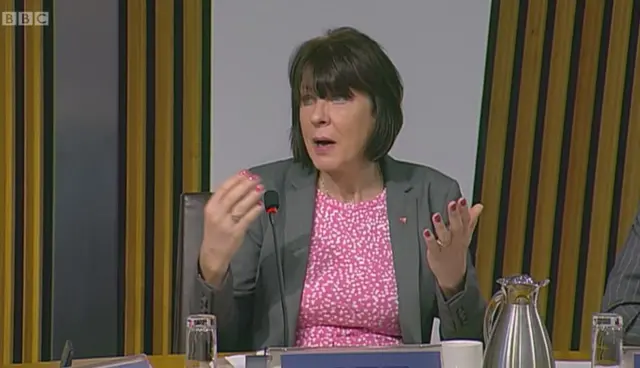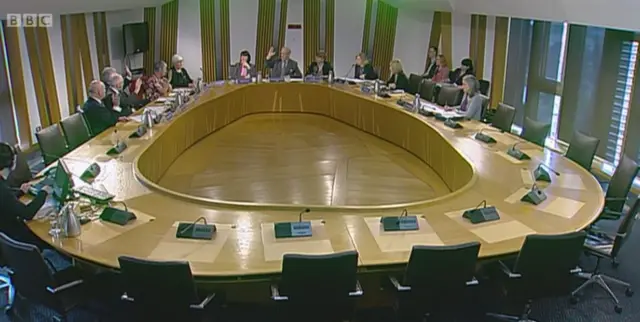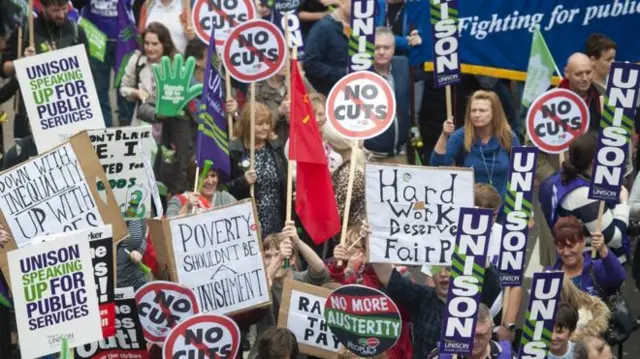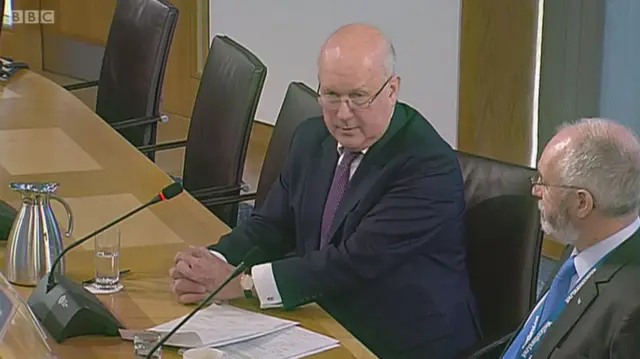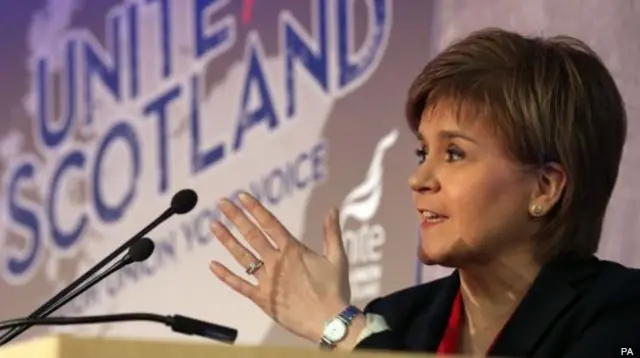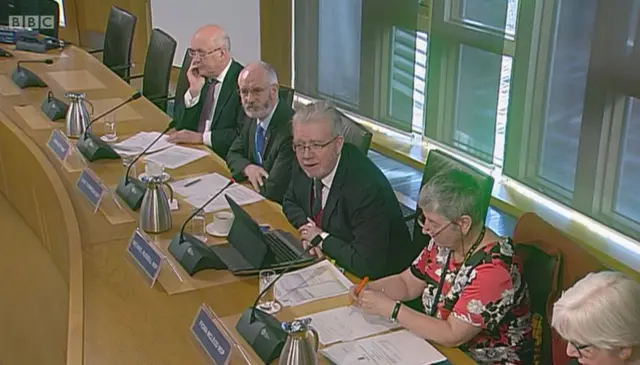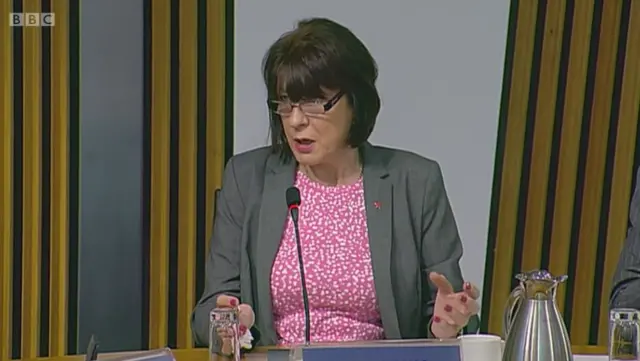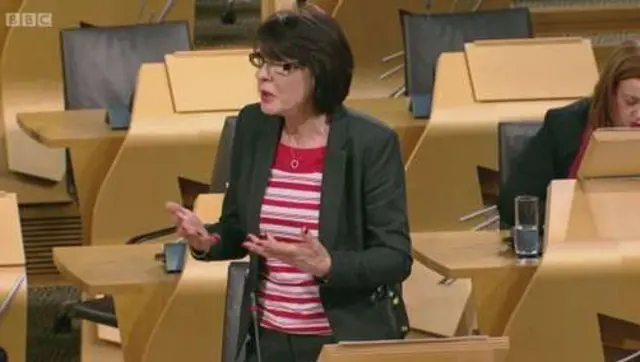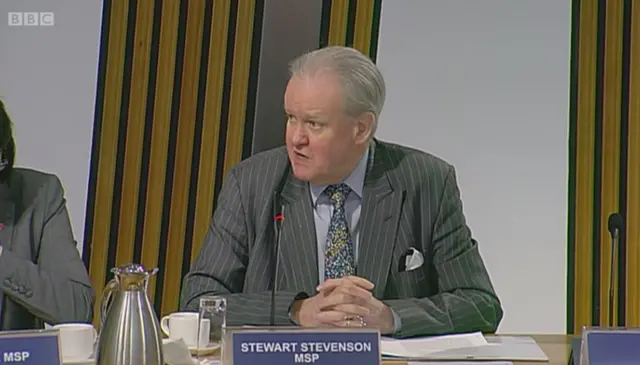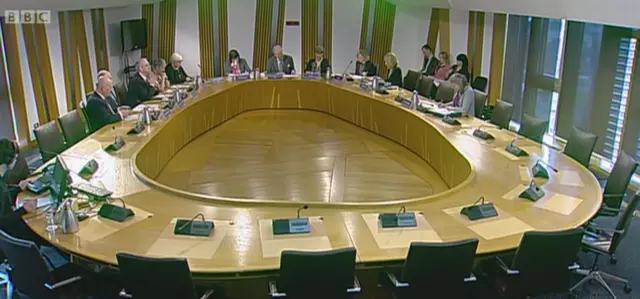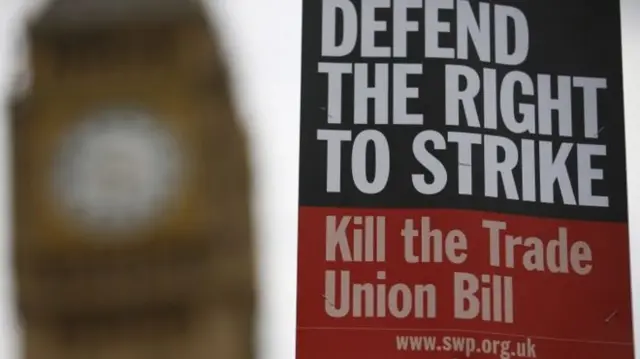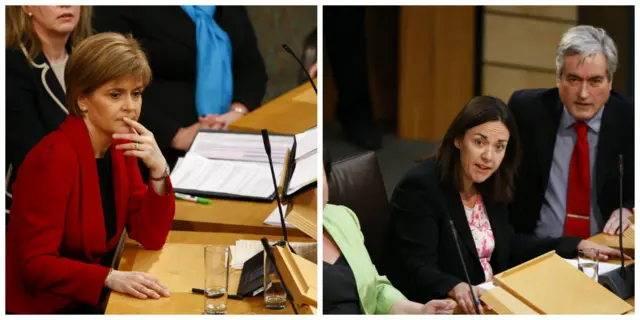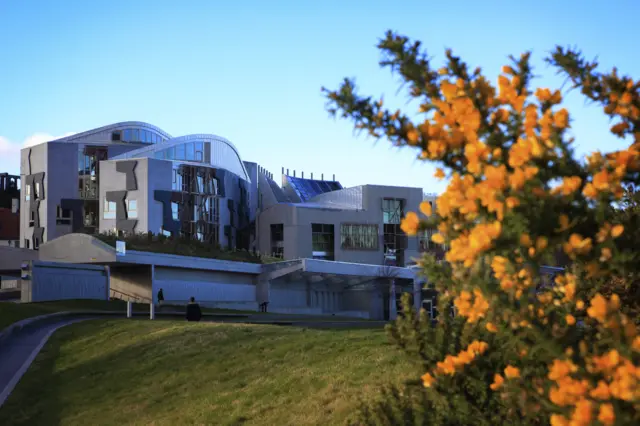Coming up in the chamber......published at 11:11 GMT 11 February 2016
MSPs will quiz ministers during general questions on issues including the reported shortage of GPs in rural areas, the EU referendum and the reduced climate change budget.
At 12pm we will bring you extensive coverage of first minister's questions, with all the social media reaction as it happens.
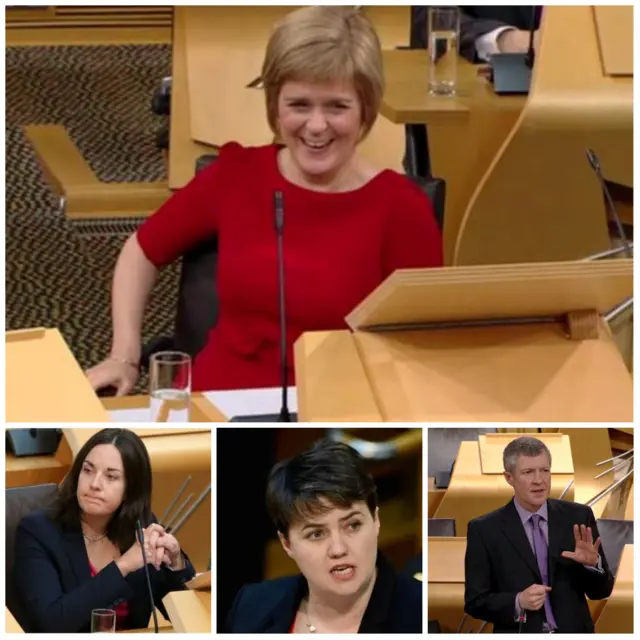
We'll bring you extensive coverage of first minister's questions from 12pm
SNP MSP Graeme Dey will then lead a member's debate highlighting the importance of local newspapers, which will take us to the lunch break.
